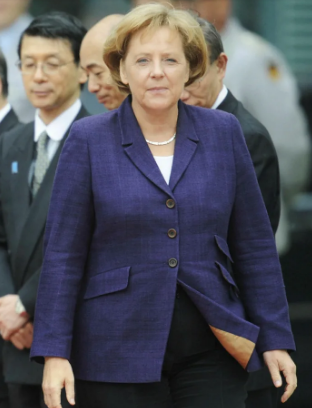The Legacy of Angela Merkel
- Bahigea Alassaad
- Oct 4, 2021
- 3 min read

The German federal elections were held on 26 September 2021, and for the first time since 2005 Angela Merkel was not running. Her exit from the German political stage could jeopardize her legacy.
Merkel’s enthusiasm for advancing environmental issues in diminishing industrial nations emissions translated in her leading role in persuading the G8 and G20 countries in endorsing the findings of the climate commissions and accepting the Paris Agreement. This might not receive the same level of attention from the next chancellor. Germany’s economic prosperity peaked under her leadership, with very low unemployment rates, and withered crises like the 2008 economic crisis in Europe or more recently the global economic impact due to covid. Her diplomatic style and good crisis management have helped Germany steer away from the EU sovereign debt crisis from 2010 onwards, where she managed to stay on course in accordance with the Maastricht Treaty, persuading both French Presidents Sarkozy and Hollande to join her. On the international stage, she was able to conserve and then further develop the China-German economic relation, a major partner to Germany.
The Merkel political “style” is perhaps best understood in her unusual political path, from being a scientist in the mid-eighties to briefly serving as deputy spokesperson for the first democratically elected Government of East Germany led by Lothar de Maizière following the fall of the Berlin wall. This marked the beginning of her impressive and fast-rising career in politics. After the German reunification of 1990, Merkel was elected to the Bundestag for the state of Mecklenburg-Vorpommern. In 1991, then the protégée of the Chancellor Helmut Kohl, she was selected as Minister for Women and Youth, and later in 1994 was appointed as the Minister for the Environment, Nature Conservation and Nuclear Safety. After the loss of the Christian Democratic Union (CDU) in the federal elections of 1998, Merkel was elected as CDU General Secretary, before becoming the party’s first female leader. In 2005, she led a grand coalition consisting of the CDU, the Christian Social Union (CSU) and the Social Democratic Party of Germany (SPD), she won the federal elections leading the CDU to become one of the largest political parties in Germany.
German people perhaps see in Merkel independence and humility, qualities not always associated with politicians in power. It is the Merkel “style”. Busy with Germany, but not absent from home, she does her own household chores. Reputed to be a talented chef, she cooks for herself and her husband, some of her signature dishes are potato soup, beef loaf and plum cake. Merkel is a big fan of soccer. She befriended the German National Team during their journey to winning the World Cup in 2014. Colourful in the midst of dark-suited male politician, bright hip length blazer with tampered trousers, rainbow of jackets, feed an image of her that is unique. She created a new role model for a political figure. Germany’s young generation that looked up to her will be attentive to the post-Merkel era, and how the political landscape will look after these elections.
The elections were won by the Social Democratic Party of Germany (SPD), with Merkel’s party the CDU coming second. We are expecting the new German government formation to appear in few months, after what is typically long negotiations between parties to form a ruling coalition.
What is sure is that Angela Merkel, now outside the Bundestag, is a new page that has turned for Germany.





Comments